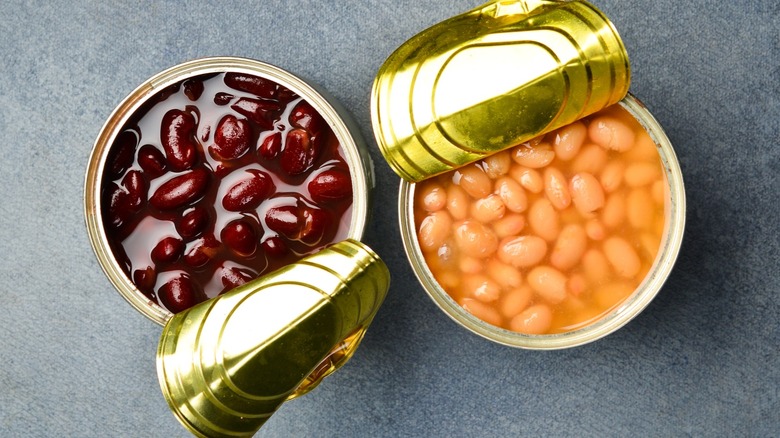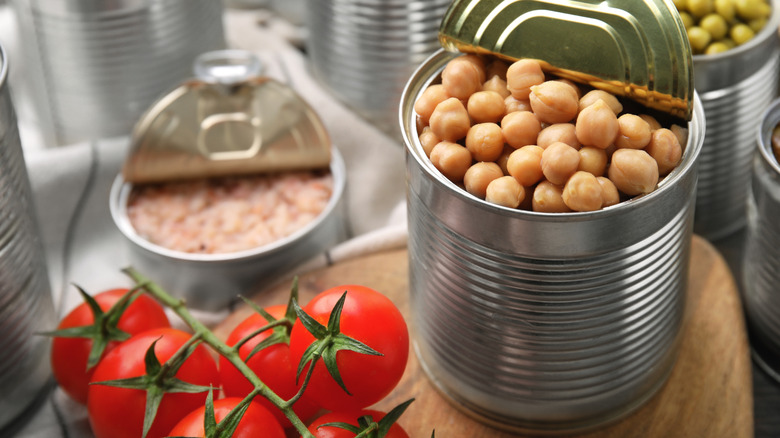How Long Do Canned Beans Last?
Canned beans earn their spot on pantry shelves as a versatile staple, helping to quickly and easily pull together meals while providing protein and fiber. But what if you grab a can for dinner that was hiding in the back of your kitchen cabinet and realize it's past the "use by" date? Are the beans still safe to eat? The good news is that unless they've been there for more than half a decade, they're likely not only safe, but still taste fine, too.
The "use by" and "sell by" dates on cans aren't actually about safety. Beans and other properly stored canned foods can remain safe for decades, which is why, in the U.S., the government doesn't mandate expiration dates. Instead, manufacturers print a "use by" date to indicate when the food's quality may start to decline. However, beans and other low-acid foods like corn, carrots, and non-tomato soups can still maintain good taste and texture for up to two to five years beyond that date. Higher-acid foods, such as tomatoes, fruit, and sauerkraut, have a shorter shelf life — up to 18 months.
Canned beans have such a long shelf life because of how they are treated during the canning process. Dry beans are first rehydrated in hot water at 167 to 185 degrees Fahrenheit, which kills off microbes. Later, they are pressure-cooked in the cans at a much higher temperature — over 212 degrees Fahrenheit — eliminating any remaining bacteria. Vacuum sealing prevents any new microorganisms from getting inside.
How to store canned beans, and danger signs to look for
To help canned beans maintain their best quality for as long as possible, store them in a cool, dry place — away from the stove, moisture, or extreme temperatures. Once opened, any leftovers should be transferred to a separate container and kept in the refrigerator for three to four days. Do not store them in the can.
Whether a can of beans is nearly five years past the "sell by" date or still within it, there are certain warning signs that indicate it isn't safe to eat. Discard the can if it has large dents, is leaking or bulging, or has significant rust. Do not eat the beans if they have a bad smell, appear moldy, or look discolored, or if liquid sprays out when you open the can. These signs suggest that the seal may have been broken, allowing potentially harmful organisms to enter.
Before using canned beans, draining and rinsing them under cool water removes the starchy, salty liquid from the can, leaving a clean, mild bean flavor that can be enhanced with simple ingredients. However, the liquid can also be added to comforting soups and stews for extra body and flavor. If you're working with chickpeas, the canning liquid can serve as an egg substitute in many recipes. Saucy canned baked beans are flavorful on their own, but they can get an extra boost with smoky bacon.


